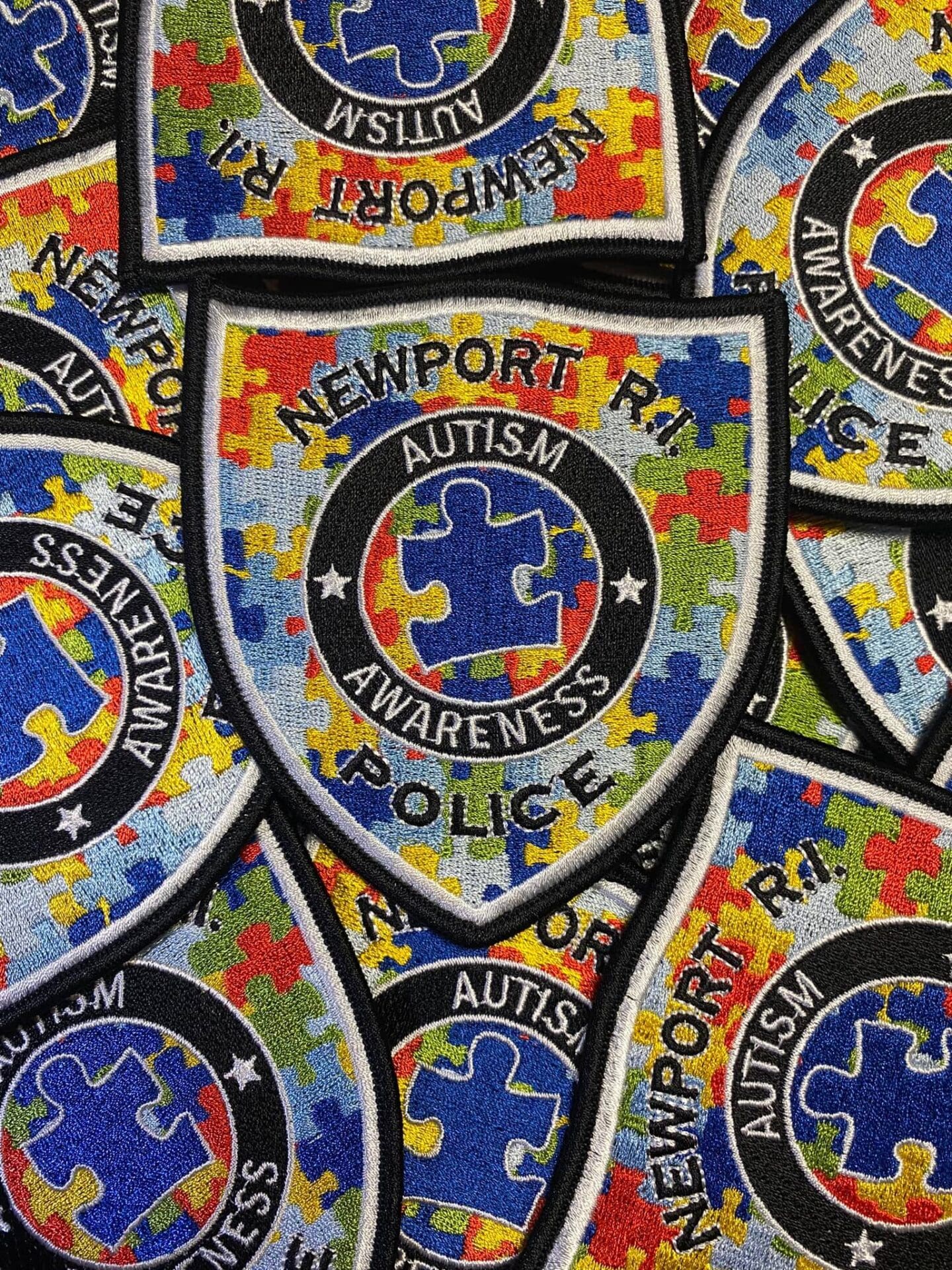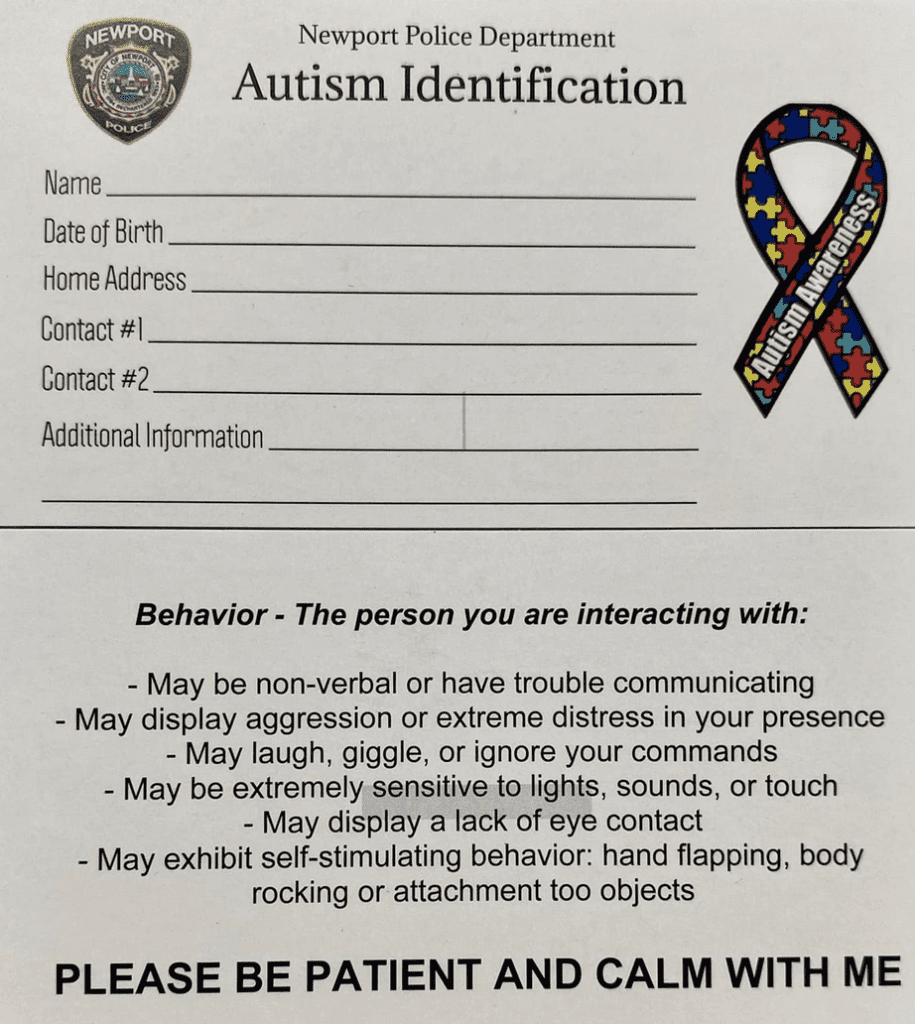Search Posts
Recent Posts
- Real Estate in RI: Seaside waterfront communities are all the rage. Who’s buying – Emilio DiSpirito June 6, 2025
- All About Home Care, with two Rhode Island locations, closing after 22 years in business June 6, 2025
- GriefSPEAK: Angel wings with footprints – Mari Nardolillo Dias June 6, 2025
- Rhode Island Weather for June 6, 2025 – Jack Donnelly June 6, 2025
- Rhode Island Weather for June 5, 2025 – Jack Donnelly June 5, 2025
Categories
Subscribe!
Thanks for subscribing! Please check your email for further instructions.

Newport & Swansea Police mark Autism Awareness Month
April is Autism Awareness Month – and two local police departments are recognizing the month for the citizens of their communities.
First – in Newport…
The officers in the Newport Police Department are wearing commemorative patches that impacts so many, including the interactions between police and individuals with special needs.
The popular patches will be sold to the public as well – and proceeds will be donated to The Autism Project. Autism Identification cards are also available at the station.
These ID cards are to help individuals on the autism spectrum explain their medical condition to police, EMT’s, and other first responders in the event of an emergency. https://npdpatches.company.site/products
The Newport Police also offer an identification card for families which can be picked up at the station or downloaded and printed, here:

And – in Swansea…

The Swansea Police Department will once again be participating in the Autism Police Patch Program throughout the month of April to raise awareness of autism spectrum disorder (ASD). Swansea Police will be renewing the tradition of wearing a special Autism Awareness patch on their uniforms during the month of April, which is National Autism Awareness Month. The department will also have a limited number of special Swansea Police autism awareness patches available to residents in lieu of a donation throughout the month of April while supplies last.
Patches are $11 each and can be obtained online or at the Swansea Police Station, 1700 G.A.R. Highway, at any time. To purchase a patch or donate online, click here. Those wishing to purchase a patch in-person can pay with cash, check or money order. Checks should be made out to the Swansea Police Patrolman Association. All proceeds will go to the Doug Flutie, Jr. Foundation for Autism. The Flutie Foundation provides financial assistance for families caring for a loved one with autism and educates the public about autism spectrum disorder.
Community members are encouraged to take a photo with “Patches,” the department’s Autism K-9 stuffed animal. Those interested should contact Lt. Joseph Martin by email at joseph.martin@swanseapolice.com.

Autism, or autism spectrum disorder (ASD), refers to a broad range of conditions characterized by challenges with social skills, repetitive behaviors, speech and nonverbal communication. According to the Centers for Disease Control, autism affects an estimated 1 in 44 children in the United States today.
We know that there is not one autism but many subtypes, most influenced by a combination of genetic and environmental factors. Because autism is a spectrum disorder, each person with autism has a distinct set of strengths and challenges. The ways in which people with autism learn, think and problem-solve can range from highly skilled to severely challenged. Some people with ASD may require significant support in their daily lives, while others may need less support and, in some cases, live entirely independently.
Several factors may influence the development of autism, and it is often accompanied by sensory sensitivities and medical issues such as gastrointestinal (GI) disorders, seizures or sleep disorders, as well as mental health challenges such as anxiety, depression and attention issues.
Signs of autism usually appear by age 2 or 3. Some associated development delays can appear even earlier, and often, it can be diagnosed as early as 18 months. Research shows that early intervention leads to positive outcomes later in life for people with autism.
